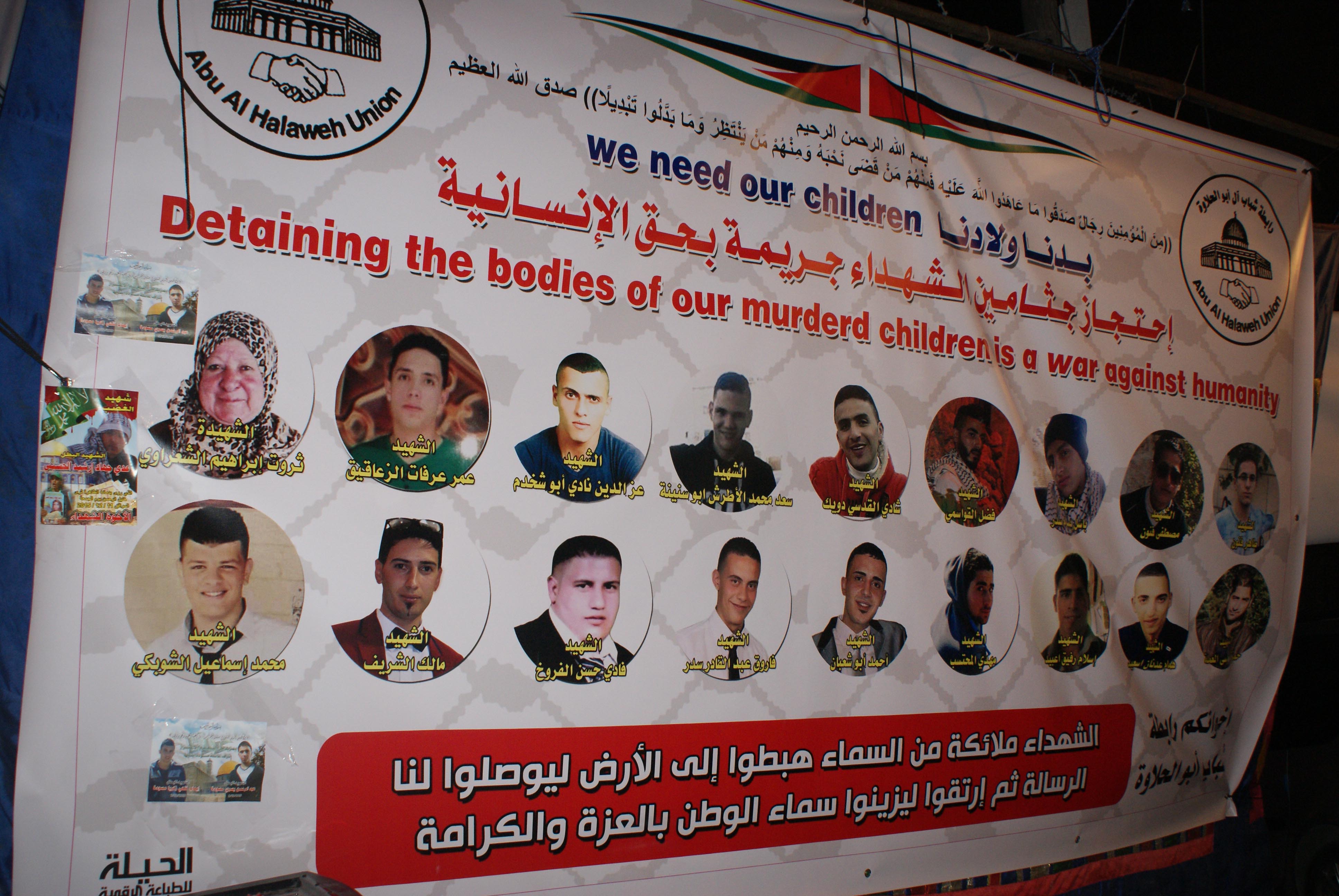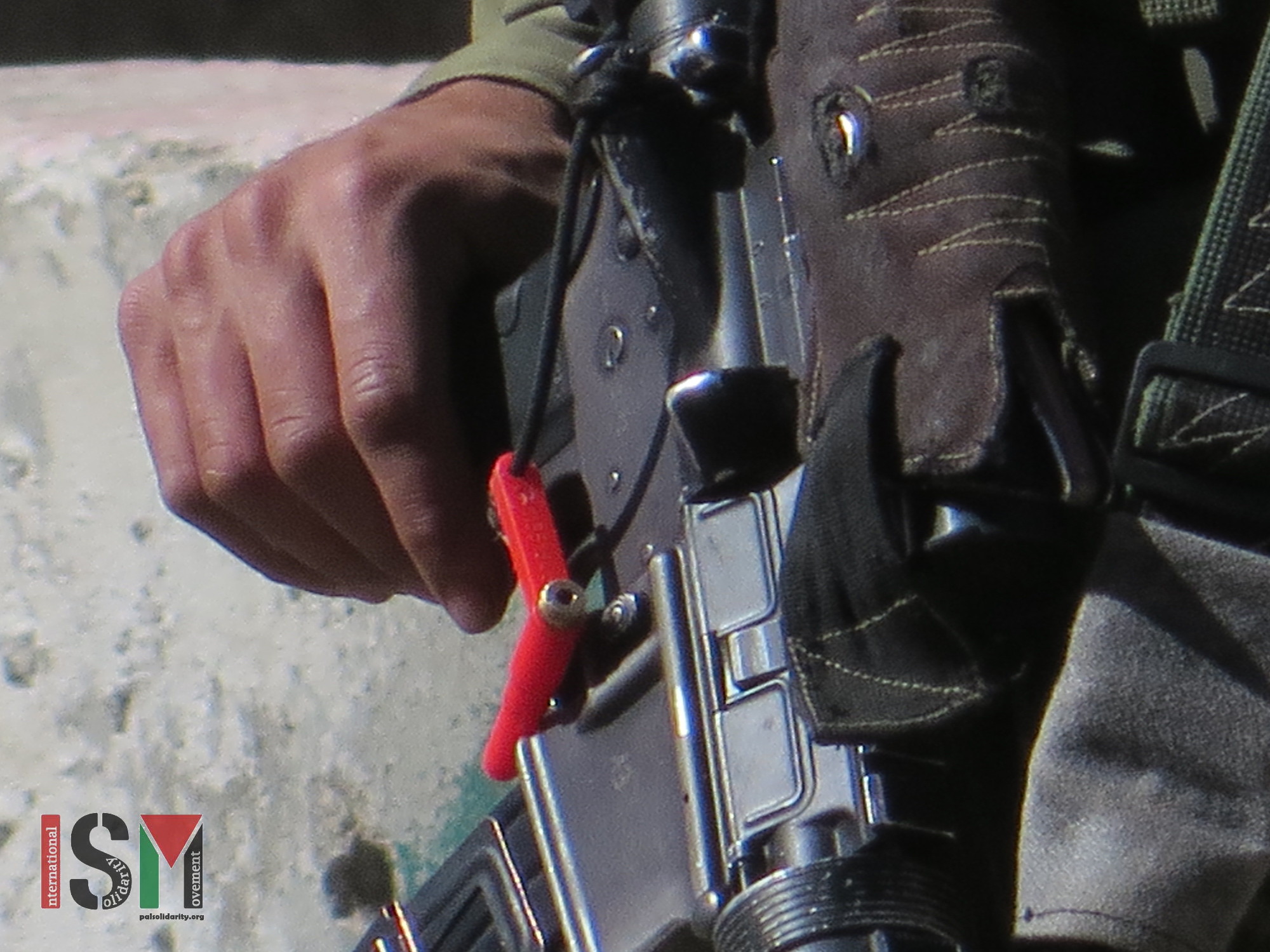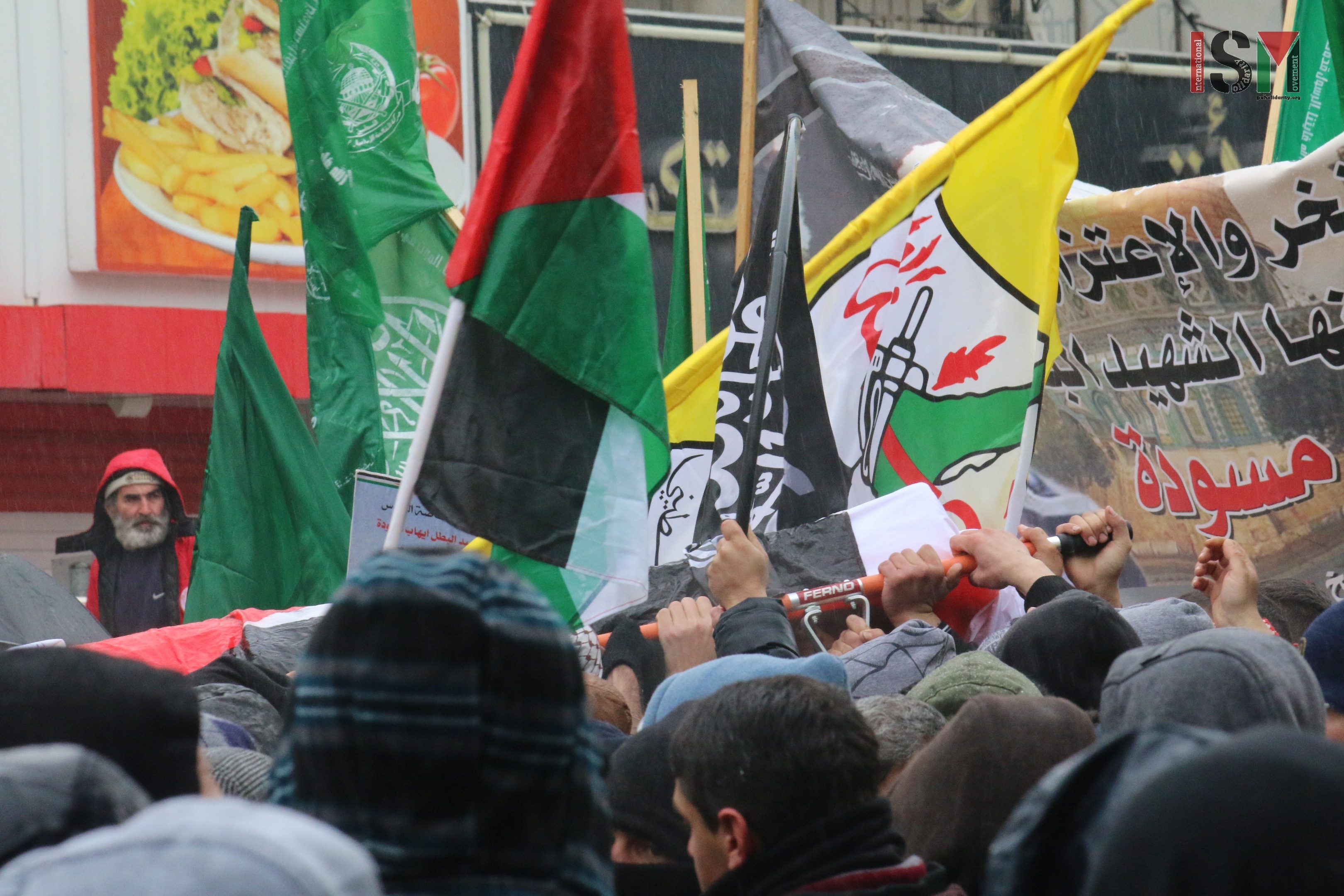Category: Video
-
Video: Willful Killing
20th February 2016| ProPal | Occupied Palestine This video produced by ProPal shows examples of Israel’s ongoing policy of executing Palestinians and how Israeli politicians instruct and encourage Israeli forces to shoot to kill any Palestinian suspect.
-
Palestinians aggressively harassed by Israeli forces on their way to prayer
19th February 2016 | International Solidarity Movement, al-Khalil team | Hebron, occupied Palestine On 19th February 2016, as Palestinians were on their way to the Friday prayer in Ibrahimi Mosque in occupied al-Khalil (Hebron), Israeli forces stopped, delayed, body-searched and harassed them. Like every Friday, Palestinian men, women and children made their way through the…
-
14 Palestinians finally laid to rest in occupied al-Khalil
2nd January, 2016 | International Solidarity Movement, al-Khalil team | al-Khalil, occupied Palestine On the 2nd of January 2016, thousands attended the funeral of 14 martyrs in occupied al-Khalil (Hebron). A demonstration following the funeral, against the continued killing of Palestinians with impunity by the Israeli military and Zionist settlers, was attacked by Israeli forces. The new year in the…



